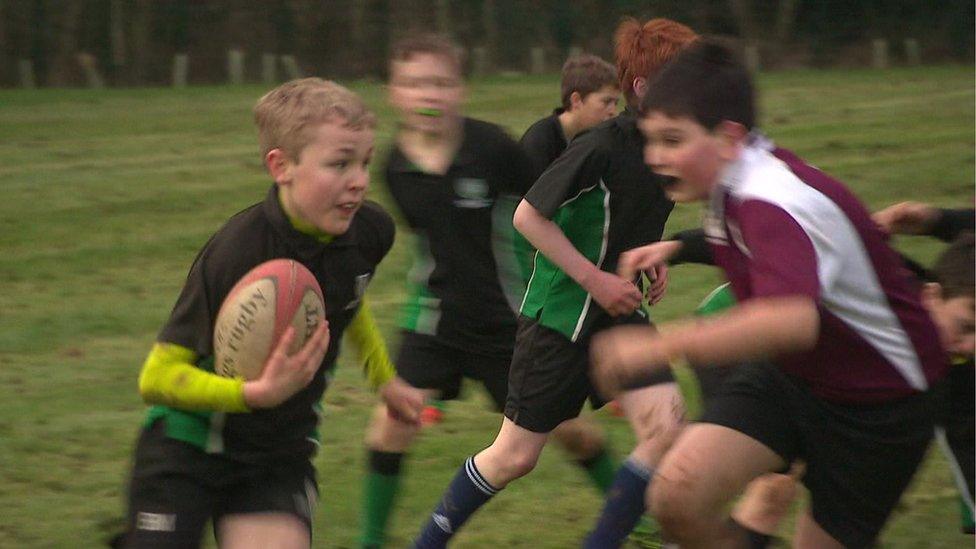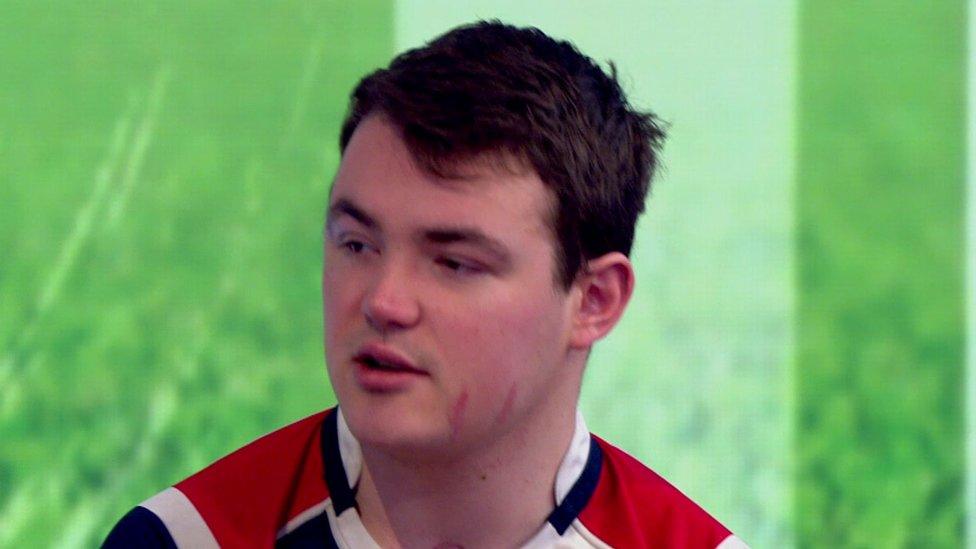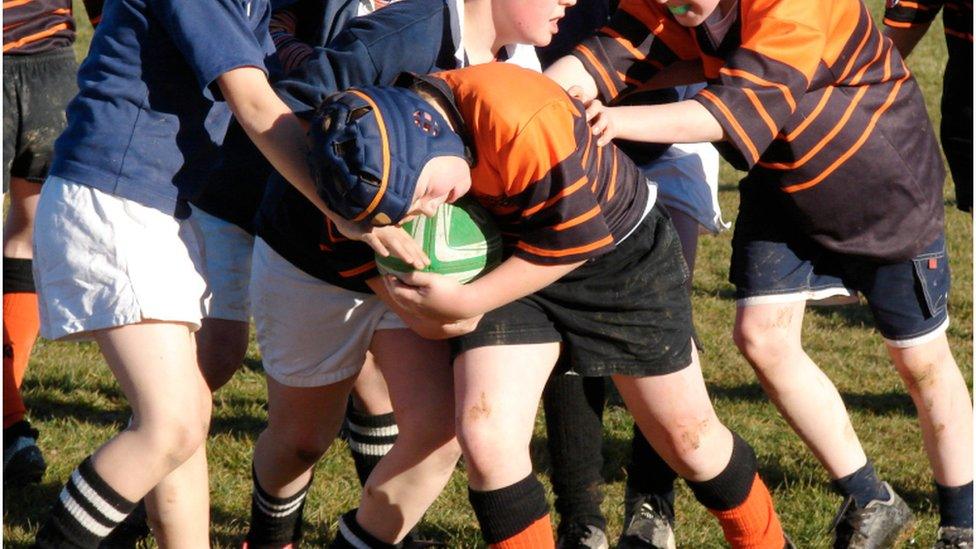School rugby: Is tackling 'intolerable' or essential?
- Published

A group of doctors and academics have called for a ban on tackling in rugby matches in UK and Irish schools - but opponents say contact is a key part of the sport.
Here are the views of parents and pupils, some of whom have suffered rugby injuries.
You can also read a selection of parents' views from our Facebook page, external below.

'Injury is part of all sport'
David Ross broke his neck playing school rugby but says he "can't blame" the sport
David Ross is paralysed from the neck down, having broken his neck playing school rugby at the age of 18.
"I was just on the ground and a tackle happened beside me and the two guys came down on top of me and my neck bent in a way it shouldn't have," he told the BBC.
He called it a "freak accident" and said he had "no resentment at all towards the sport".
David, who hopes to play wheelchair rugby at the Tokyo Olympics in 2020, said contact was a key element of rugby, and he did not think it should be banned in schools.
"People who get involved in rugby, they know it's a contact sport and they know what they're getting in for and injury is part of all sport," he added.

'Intolerable' risks
Jane Aldridge's son missed two years of school after breaking his back when a scrum collapsed during a school rugby match.
"He's lucky. He has no neurological damage. Plenty of boys end up paralysed following rugby matches," she said.
"He's back at school now which is good, but it was a very, very difficult two years for him."
Rugby was compulsory at the school, she said, but if her son had been aware of the risks he would not have played.
She said the benefits of playing sport were clear, but added: "You have to ask whether the specific benefits from the contact elements of rugby justify the risks, which to my view are intolerable."

'Hit the dirt and woke up a month later'

Angus Swanson, now 20, had a brain haemorrhage at the age of 18 after a rugby tackle, but he still plays and coaches an under-14 team.
Talking about his injury, he said he "hit the dirt and woke up a month later".
But he said tackling was an essential part of rugby - and instead of "neutering" the game, school pupils should be allowed to play other sports if they did not want to play rugby.
He said rugby players must be taught how to tackle properly from a young age - because otherwise when they do start tackling they will be "running around dumping people on their heads".



'Ferocious behaviour'
Keith Dancey, from Taunton in Somerset, is in favour of a ban, and does not allow his 11-year-old son to play.
"Two years ago, a 10-year-old boy at his school suffered multiple breaks to his legs and was in a wheelchair for many weeks and then on crutches," he said.
"In the same season, a young teenager broke his arm in two places and can now no longer play tennis."
He added: "I've seen the ferocious behaviour between children on the rugby pitch, often encouraged by their own parents and some staff members.
"If parents are willing for their children to risk their long-term future for a game of rugby, then they are not acting in the interests of the child."

'Wrap them in cotton wool?'
Dave Naylor, from Ripon in North Yorkshire, says his 15-year-old son has had his "fair share" of injuries playing rugby for his school and the local club.
"He has broken his leg, collar bone and elbow. He's currently recovering from the broken leg he sustained from a bad tackle," he said.
"But if you're to ban tackling, you may as well ban rugby altogether.
"I've seen kids breaking collar bones just running into each other. It's a contact sport. It's not for everybody. Do you want to wrap them in cotton wool too?
"The risks are there, so the sport should be left as it is."



'Knocked his confidence'
Madeline Kerry, from Walsall, said her 14-year-old son lost a front tooth and damaged another due to a bad tackle during a school rugby game.
She said her son, now 17, needed stitches in his chin and had root canal work.
"It really knocked his confidence," she said.
"I had to go and collect him. He was crying, he was shook up. We had to go to A&E and it was quite a dreadful experience."
She said her son did not like rugby but it was compulsory in the school, and she argued that children should not be forced to play certain sports against their will.
- Published2 March 2016
